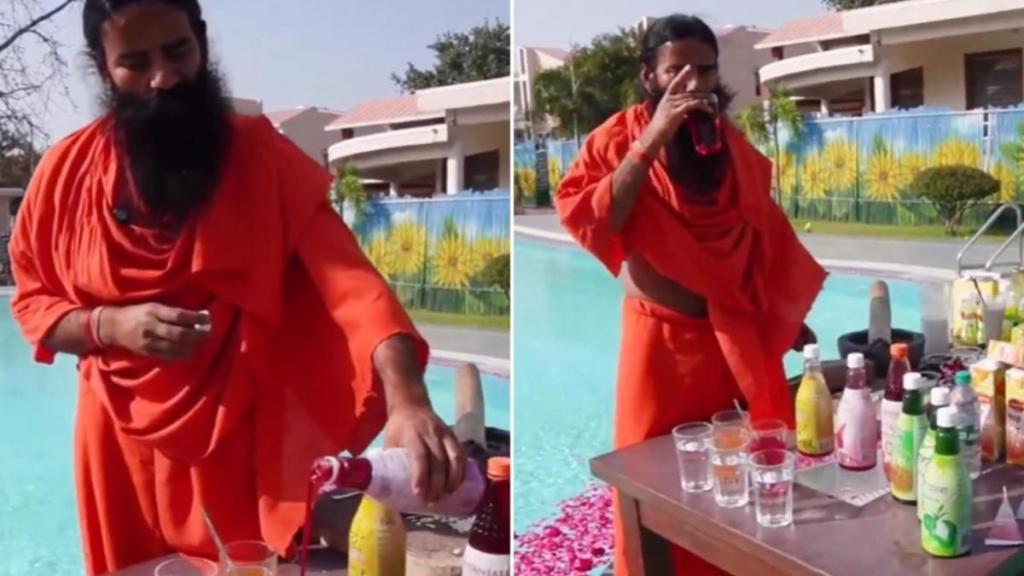After Delhi High Court sharply criticised yoga guru Baba Ramdev over his controversial ‘Sharbat Jihad’ advertisement, targeting Rooh Afza, he has agreed to take it down.
Justice Amit Bansal, hearing Hamdard Sharbat’s plea, had called the statement “indefensible” and said it “shocks the conscience of the court”.
The court’s reaction came after a video surfaced from Ramdev’s X account, in which he promoted Patanjali’s Gulab Sharbat while appearing to attack Rooh Afza, suggesting the latter funds “madrasas and mosques”. He went on to claim that his product would instead support gurukuls and Hindu educational institutions.
“If you drink that sharbat, madrasas and mosques will be built… but if you drink this, gurukuls will be developed,” Ramdev said in the video. The video is still available on his X account, uploaded on March 29, at the time of writing this report.
Though Ramdev did not directly name Hamdard, the implication prompted the company to file a legal petition. The High Court’s scathing remarks signal serious legal trouble for the Patanjali founder.
However, this isn’t the first time Ramdev and Patanjali have found themselves in hot water. Over the past two years, the company and its founders have faced multiple legal hurdles stemming from their advertisements. The issue gained national attention after the Indian Medical Association (IMA) filed a petition against Patanjali Ayurved. Hearing the petition, the Supreme Court imposed a temporary ban on its ads and issued contempt notices over alleged misleading claims.
After the SC’s slammed the Patanjali Ayurved in the misleading ads case and called the firm out for “absolute defiance”, Ramdev issued an “unconditional apology” to the apex court.

